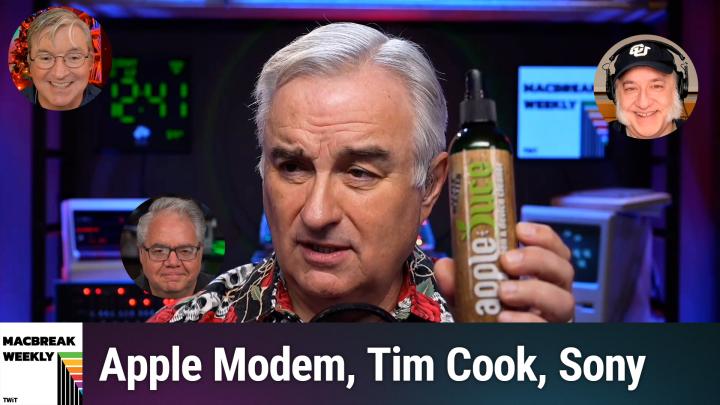Apple's Modem Ambitions: Could It Be Coming Next Year?
AI created, human edited.
Apple is on the cusp of a significant technological breakthrough that could reshape the mobile connectivity landscape. According to recent reports from Mark Gurman at Bloomberg, the tech giant is preparing to launch its first in-house modem, a move that has the tech podcasting world buzzing with anticipation. On MacBreak Weekly, Leo Laporte, Andy Ihnatko, Alex Lindsay, and Jason Snell dive into the rumored reports from Mark Gurman at Bloomberg and what this could mean for not only Apple but Qualcomm as well.
Apple's strategy is anything but reckless. Jason Snell emphasized the importance of not betting against Apple's chip team, calling it "the single best part of the last 10 years of Apple." The company isn't diving headfirst into its most critical products, but instead taking a measured approach.
The initial deployment will be in the iPhone SE and lower-end iPads – a strategic move that sparked interesting commentary from the panel. Andy Ihnatko highlighted the wisdom of this approach, noting it's a perfect way to test a new modem without risking performance in flagship devices. "This isn't about the 99%," Ihnatko quipped, "This is about the one percent for whom your new modem fails."
While initial lab tests show download speeds of 4 gigabits per second – which might sound modest – the team saw deeper potential. Alex Lindsay pointed out that real-world cellular performance is often underwhelming anyway, with many users experiencing speeds under 10 megabits per second in various locations.
The discussion revealed Apple's larger ambitions. The modem isn't just about smartphones. The hosts speculated about potential integration into MacBooks, iPads, and even future AR devices like the Vision Pro. Jason Snell was particularly excited about the possibility of cellular MacBooks, a feature long desired by many tech enthusiasts.
An interesting side note from the discussion highlighted California's unique tech ecosystem. Alex Lindsay emphasized how the state's lack of non-compete clauses allows tech companies to freely "steal" talented engineers, which has been crucial to Apple's modem development strategy.
The move could be significant for Qualcomm, which currently receives over 20% of its revenue from Apple. While patent licensing will continue, losing Apple as a chip customer would be a substantial blow. Apple's modem development isn't just a technical project – it's a strategic chess move. By controlling more of its technology stack, Apple continues to differentiate itself in an increasingly competitive smartphone market. But as the hosts suggested, this is classic Apple: patient, deliberate, and always playing the long game.
Become a subscriber and never miss an episode: MacBreak Weekly
Want ad-free, exclusive podcasts? You can join Club TWiT for $7 a month and get everything the club offers, or just get the podcast ad-free for $2.99 a month.
